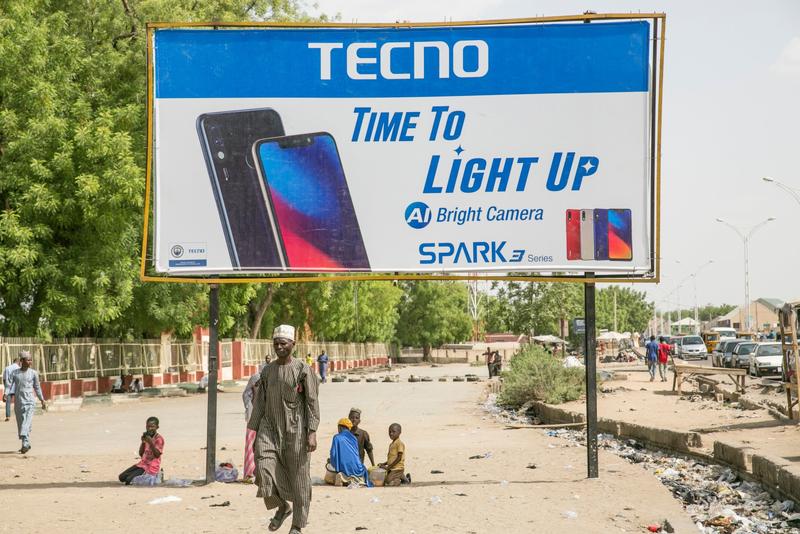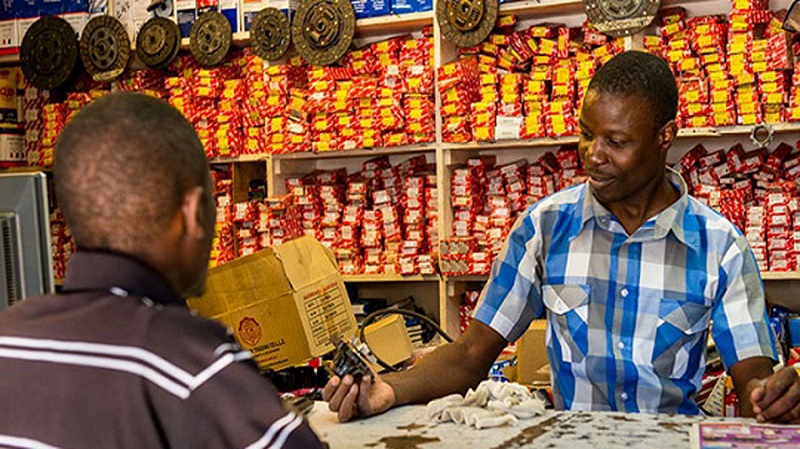Within months of each other, Jumia AG, the African e-commerce giant and Transsion Holdings, the phone maker with the biggest market share in Africa, floated their IPOs. Listing on the NYSE and Shanghai’s STAR market respectively, both companies raised a combined $616 million.
The origin story
In 2006, Tecno Telecom Limited, now named Transsion Holdings opened its doors in Hong Kong. Its first-ever product was the Tecno T201.
Two years later and sensing an opportunity to be a major player in Africa, the company made the leap into the continent.
The decision to focus on Africa was to avoid Chinese rivals, Huawei at home. It was their studied belief that Africa was the scene for growth.
“When our company was founded, each of the emerging markets including Africa, China and India boasted 1 billion potential customers,” Arif Chowdhury, vice president at Transsion said recently.
“But comparatively speaking, competition in the African market was less fierce.”
That has proven to be correct. Transsion has become Africa’s biggest phone seller, first pushing out Nokia and now holds more than half the feature phone market on the continent. For smartphones, it comes second behind Samsung and ahead of compatriots Huawei in third.
Transsion’s advantage mostly lies in the affordability of its Tecno, Infinix and Itel brands – for $80 you can buy an entry-level device.
Four years after Transsion’s entry into Africa, Tunde Kehinde and Raphael Kofi Afaedor were launching the e-commerce platforms, Kasuwa and Sabunta. While Sabunta was an online platform focused on fashion, Kasuwa sold general merchandise.
It was the merger of Kasuwa and Sabunta, both already backed by German investor, Rocket Internet, which birthed Jumia, which is today described as “the Amazon of Africa”.
Their vision, at the time of the merger, was to become the number one online marketplace for people to buy and sell their products.
Jumia’s growth spurt
Jumia’s footprint stretches across 14 African countries.
Across these countries, it spread its business verticals to include travel booking, hotel booking, food delivery and many more.
In 2016, Jumia would bring all its business including Jovago, Lamudi, HelloFood under the umbrella of the Jumia ecosystem.
The road to Initial Public Offering(IPO)
Any keen observer of Rocket Internet’s business model could have predicted a Jumia IPO.
Rocket Internet’s strategy seems to involve cloning existing, successful internet businesses like eBay and Bookings.com and replicating it in other countries.
Between 2014 and 2018, Rocket exited at least four of its businesses: HelloFresh, Delivery Hero, West Wing Group AG and Home 24 SE.
Rocket wasn’t the only investor looking to make an exit. South African telecoms company, MTN, with the biggest stake in Jumia (29.7%) were also reportedly ready for an exit of sorts.
The narrative leading up to the IPO on the NYSE was: here is your chance to own a piece of Africa’s first unicorn.
That the company hadn’t turned a profit since it launched was hardly an issue. It pointed to growing Gross Merchandise Value (GMV), increasing revenue from commission from third-party merchants and a growing number of active users.
On the strength of these considerations, Jumia shares were priced at $14.50 on a $1.3 billion valuation.
On the first day of trading, it closed at $25.46, up 76% from its opening price.
Transsion lists on Shanghai’s tech-focused STAR market
While Jumia’s total revenue for 2018 stood at $147.5 million, Transsion’s prospectus revealed revenues of $3.95 billion for the same period. The company’s phone business accounted for 96% of its revenue.
Despite Transsion’s impressive numbers, it still had to meet stringent requirements to be listed on the tech-focused STAR board, China’s second attempt at creating its own Nasdaq.
One of these requirements is an expected market capitalization of no less than $150 million. Others are positive net profit margins in the two years before listing, and a total net profit margin of no less than $7.5 million during the same period.
Weeks before the listing, Huawei sued Transsion for Intellectual Property theft, but it did little to douse optimism ahead of the IPO.
Upon listing, it became the second-largest IPO on the Star market with shares priced at $4.93, leading to a hefty $3.95 billion valuation.
Post-IPO and the future
A scramble for Transsion stock led to share prices as high as $8.48 but the market has cooled in that time, with prices holding steady at around $5.
Jumia hasn’t fared as well. Despite starting out strong, the company’s stock is now trading in the single digits, having traded between the $6- $9 range since September.
Its shares fell again at the expiration of the Jumia’s stock lock-up period, a six-month provision which prevented its biggest pre-IPO investors such as MTN from selling their shares.
Trading today at $7 per share, it represents an 80% fall in share prices since it attained its post-IPO peak of $46.99.
The company’s poor run began when Beverly Hills-based Citron Group released a report accusing Jumia of fraudulent claims in its F-1 filing.
The metrics in contention are Jumia’s number of active users as well as the percentage of returned/cancelled orders by customers. Citron alleges discrepancies between Jumia’s numbers in its F-1 filing and some numbers it showed some investors behind closed doors.
These claims led to a class-action lawsuit by the American firm, Kaskela Law LLC but Jumia has remained adamant that they did not muddy the numbers.
“Jumia stands by our prospectus and audited financials…and will not be distracted by those who look to create doubt, to profit at our expense and that of our long-term stakeholders.”
- Sacha Poignonnec, Jumia CEO.
Citron founder and author of the report, Andrew Left has been reported by TechCrunch to hold short positions in Jumia, meaning he could benefit if Jumia’s shares continue to plummet.
While Left has financial incentives in perhaps engineering Jumia’s fall, one of his allegations was confirmed in Jumia’s 2019 Q2 report.
Jumia revealed that some JForce consultants had perpetrated fraudulent transactions amounting to 1% of its GMV in Q1 2019. The fraud doesn’t seem to be a new thing: the company admitted that it had affected its GMV for every quarter since the start of 2018.
JForce members are independent sales consultants who earn commissions by assisting customers to place orders on the e-commerce website. The company revealed it was investigating the report.
The retailer tried to downplay the fraud claiming that it “had virtually no impact on our 2018 or 2019 financial statements.”
Unfortunately, this was not the only incident of fraud in the company. The Q2 report showed that improper (read fraudulent) orders placed by JForce consultants amounted to 4% of GMV in Q1 2019.
Market realities
Despite these issues, investors will be looking ahead to Jumia’s November 22 earnings call. It will be one of several pointers along the road to see if the company’s 2022 projected profitability date will hold out.
Jumia’s success will depend on robust economic growth in Nigeria, the African country with the largest addressable market.
On the one hand mobile penetration rate stands at an impressive 87%. On the other hand, GDP growth has stalled to less than 2% in the last four years.
As Nigeria’s middle class shrinks, an even smaller section of the population will have enough disposable income to afford anything but food and shelter.
Real growth for Nigeria’s economy could be crucial to Jumia meeting its target date for profitability.
But an analyst at a leading Nigerian stockbroker thinks that 4-6% GDP growth, above the projected growth of 2.3% by 2020, might not be enough to make Jumia profitable.
“The Nigerian economy is not growing at a rate convincing enough to spur consumption beyond autonomous levels. A 4-6% growth may not be feasible and in the event that it is, Jumia may not be a direct beneficiary of this mediocre growth.”
For Transsion Holdings, one worry is that premium brands now have more affordable smartphone offering, like the Samsung A-Series. Transsion will also be keeping its eyes on fellow Chinese smartphone maker Xiaomi.
In February, Xiaomi and Jumia signed a partnership which will help the smartphone maker’s entry into Africa. Two Xiaomi retail stores in Nairobi, with the promise of two more show the company’s intent.
Beyond Xiaomi, another headache for Transsion is the decline in Africa’s smartphone market across board.
And with increased durability and fewer game-changing innovations in new devices, many smartphone users are not willing to upgrade their phones as often.
Transsion will remain optimistic. While Samsung and other premium phone makers want to please a global audience, Transsion will keep its advantage by continuing its massive investments in R&D in Africa.
More importantly, the company’s long term plans indicate a diverse portfolio. In 2015, it launched Oraimo, a mobile phone accessories brand. It also owns Synix, which produces home appliances.
The company also owns Boomplay, a music streaming service which it claims 46 million users. Software is another vertical Transsion is making investments in. In 2016, it launched HiOS, a customised Android OS.
You can read a review of Tecno’s HiOS software.
As we look to a future where mobile phone sales stall, Transsion Holding will be betting on its diverse interests to continue to drive growth.
For Jumia, as 2022 approaches, the big question mark will not be if it retains its unicorn status, but if it will, once again, need to push projections of profitability further down the road.




















